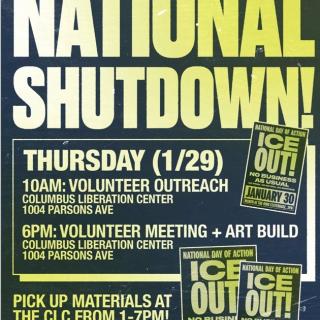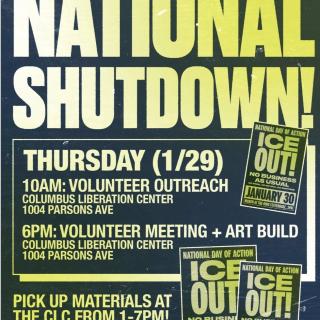Shane McCrae is the son of a white woman and a black man. In order to save Shane from the indignity and evils of being reared by his father, his mother’s parents kidnapped him when the boy was three years old. Surprisingly–but perhaps not given she was abused by her father as a child–his mother did nothing to intervene as her white supremacist parents took him to Texas and reared them as their own son. Yet his grandparents must have been afraid his mother would at some point try to stop them or find the boy, for they threatened to leave the country and prevent her from ever seeing Shane again if she did. It is a miracle that as racist as his grandparents were, McCrae never feels ashamed of his blackness. Indeed, he holds onto it, possibly because it is the one thing he knows is his.
McCrae’s grandfather was especially cruel; he was not loathe to beat the boy–he threw him against a wall when McCrae was a toddler and once knocked him unconscious–and often hurled racist insults at him. His grandmother on occasion could be affectionate, but she didn’t intervene. The abuse only stopped when she divorced her husband when McCrae was fourteen. The kidnaping and fantastical lies they told McCrae about his father formed the bedrock of the emotional abuse. Moreover, they took virtually no interest in McCrae or anything he liked or wanted and allowed him to drift through school. It wasn’t until he was in high school Shane discovered his two loves: skateboarding and poetry. Ultimately, they are what saved him and gave him the courage to find his father.
I found Chasing the Chariot of the Sun a difficult read. The abuse McCrae suffered at the hands of his grandparents was difficult to read and sometimes took my breath away. The more challenging part of reading the book, though, is that McCrae is a poet by profession, and so the book does not have the polished, straightforward construction commonly seen in memoirs and biographies. Phrases are often repeated, sentences go unfinished, punctuation is sometimes lacking, and it has a stream-of-consciousness feel to it that I sometimes found annoying. Perhaps this was to be expected since his grandparents spent their lives making sure he remembered so little. It may also be that the trauma of his kidnapping and his life with his grandparents left this as the only way he could describe his experience. On the other hand, I found it refreshing that he is so transparent about his lack of memories and whether the few he seems to have are really true. Their disjointed state serves to show the reader that memories are not infallible, and had me questioning my memories about my own family. Reading McCrae’s book, I realized that even those who were not traumatized as was McCrae cannot always trust our memories.
One of the saddest parts of the book was when he described how he slept with his bedroom light on and often fully clothed until he was thirteen. Not a night light but the ceiling light because he felt he must always be ready to be taken away somewhere. Yet in spite of the violence and emotional abuse, his indomitable will and innate spirit help him survive and dream of better days. After dropping out of school, he got his GED, went to college and graduate school, and started a family all the while writing his poetry, a thing of terrible beauty.
The title of the book is a reference to Phaethon, a mortal boy in a Greek myth who learned that his father, Helios, was a god, and his search for him. Phaethon finds his father, who offers to grant him a wish. Phaethon asked to drive the powerful chariot Helios uses every day to make the sun rise, and dies in the attempt. After all his trials, McCrae decides to find his father, searching several telephone directories until he came across his name. Unbeknown to either man, they were living in the same city.
As difficult as I found Pulling the Chariot of the Sun, I am glad that I read it. Ultimately I found that it profoundly speaks to the most important human wish: to love and be loved in return.



